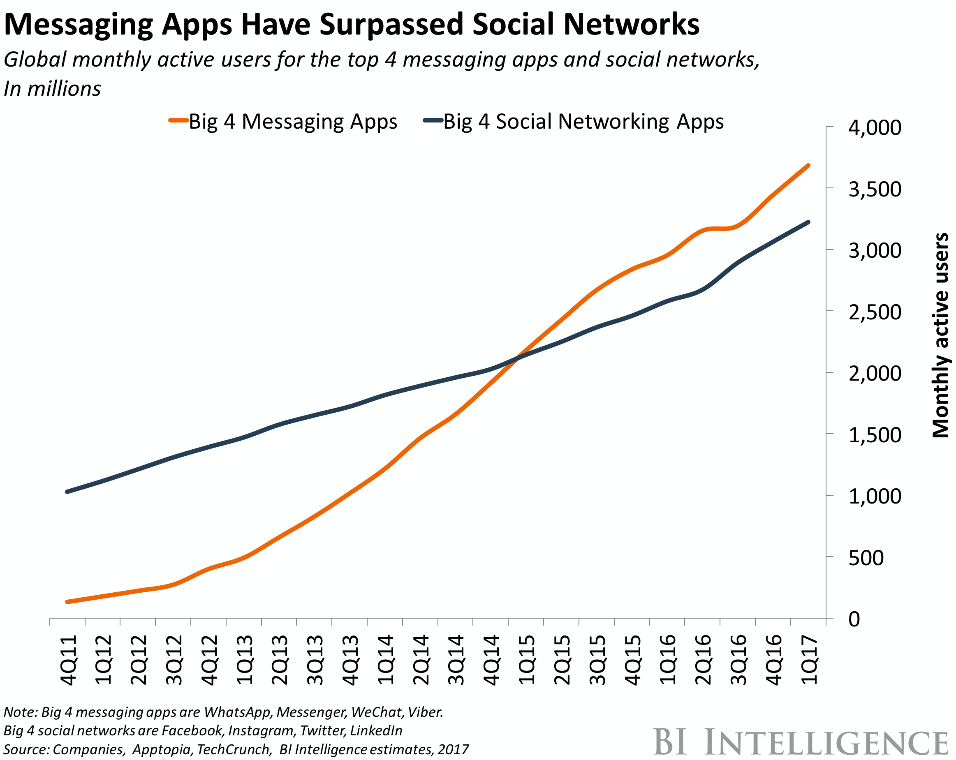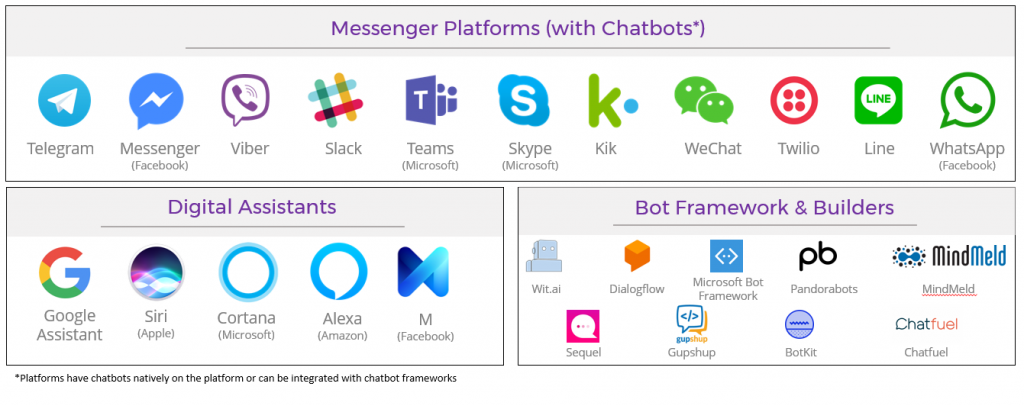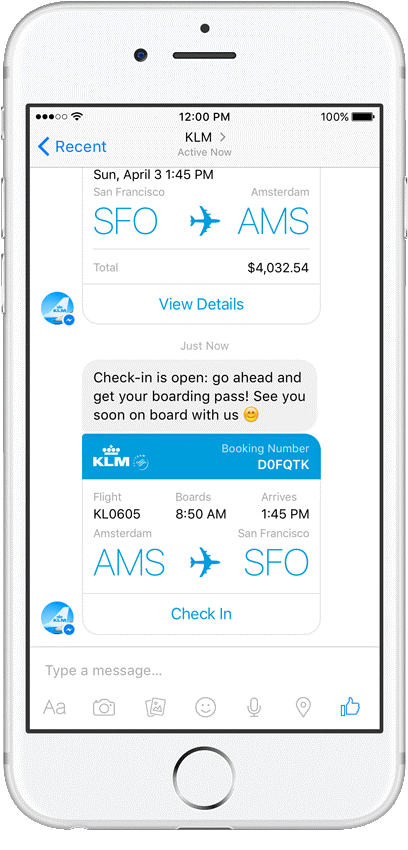The increasing interaction and popularity with online messaging has driven waves of investment and buzz into chatbots. But are they just a fad, or could they really be part of our digital future?
We are using digital messaging more than ever
Today more than 86% Australians are accessing the internet from their mobile phone1. Users are using messaging apps just as actively as social networks. In fact, the 2017 Sensis Social Media Report found that out of the 88% of Australians that use social media, 81% were also using Facebook Messenger2. Businesses are now embracing digital messaging as a new means of communication with over 45% of consumers saying they would choose messaging over traditional e-mail3.
So, what actually are chatbots?
To put it simply, chatbots are computer programs which intend to mimic human conversations, enabling two-way interactions between a human and a bot. Chatbots have changed dramatically over the last few years having shifted from providing obviously scripted conversations to providing informative and contextual assistance. Unlike customer call centres or e-mail, chatbots can be available to customers 24 hours a day, seven days a week.
“People-to-people conversations, people-to-digital assistants, people-to-bots…that’s the world you’re going to get to see in the years to come.” – Satya Nadella (Microsoft CEO)
What are the advantages of chatbots?
A major advantage of chatbots is they streamline the customer experience by bringing information to you that is relevant and contextual. This removes the onus being on the human to find what they are looking for, leading to improved customer journeys. This also leads to decreased operational costs, enabling customer service staff to focus on high-value customer interactions whilst bots can deal with “transactional” customer service tasks. Another key advantage of chatbots is that they can have personalised customer relationships based on information they have access to, or have learned from previous conversations. This streamlines their interactions and reduces friction that may be created from repeated requests for information.
Who is using them and what for?
The barrier to entry for chatbots is quite high, particularly because businesses are yet to understand chatbots or perceive it to be complex. For example, the ability to build a webpage is widespread, but comparatively – not many understand what’s involved in building a chatbot.
Fortunately, there is now an abundance of frameworks and builders which make it easier for businesses to create chatbots and integrate them with existing and new technology. After building a chatbot, they are deployed onto a messenger platform or can be used as part of a bespoke chatbot application.
So, what’s the difference between digital assistants and chatbots (i.e. Siri vs Messenger Chatbot)? Well, digital assistants have much broader capabilities than chatbots, allowing users to request a broad variety of tasks, as opposed to Chatbots which are less sophisticated and built around a specific use case.
Who is using them and what for?
Chatbots are now being seen across a large variety of industries for a whole bunch of different use cases. Chatbots are not just limited to providing assistance, they are also allowing customers to purchase, book, research, solve problems and much, much more. Here are some examples of well executed Chatbots:
SephoraCreated a chatbot to allow customers to book an appointment within Facebook Messenger. They saw an +11% increase in booking rate in comparison to other booking methods. Additionally, they have also deployed the bot to Kik Messenger. |
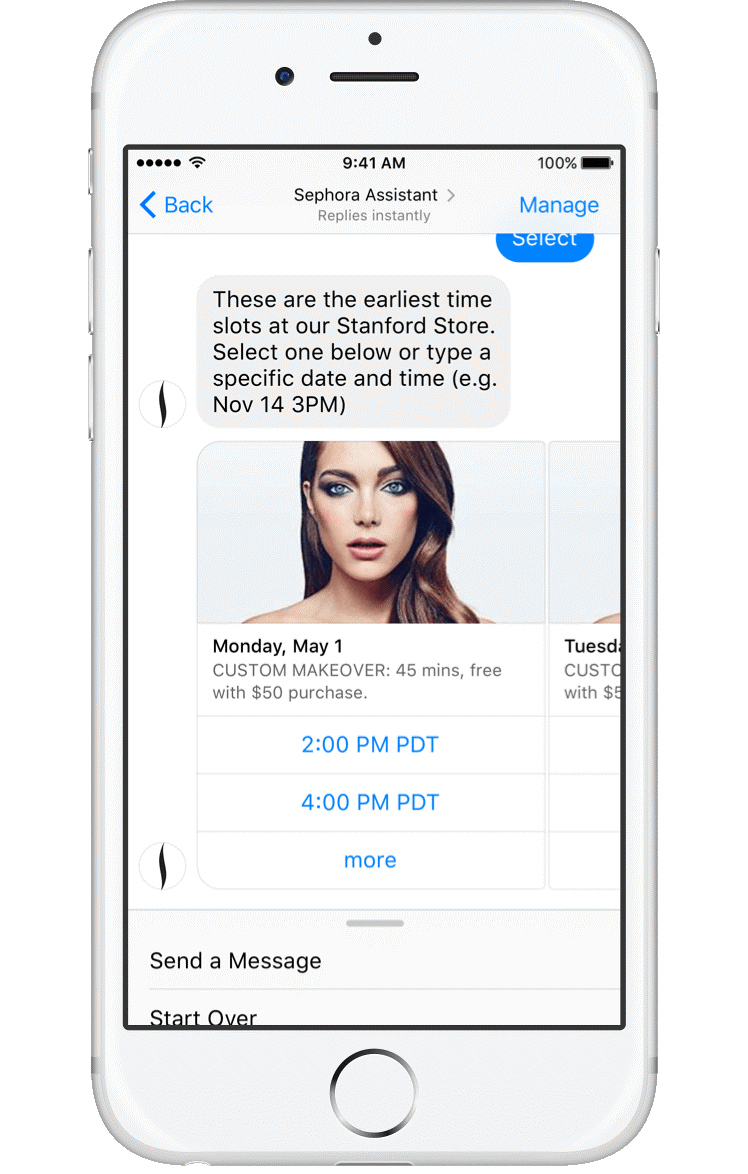 |
KLMAs part of the flight booking process, KLM lets their customers opt-in to being contacted via the KLM messenger chatbot for their flight updates. Customers can then check-in, receive information on their flights and also contact customer service for support. |
|
AdmitHubAdmithub is a chat agent that enables student support, drives key enrolment outcomes and allows colleges to scale. A case study of Georgia State University showed a 3.9% increase in enrolment and 6.25% increase in on-time transcript submissions. |
 |
Australian OpenThe Australian Open Ticket Finder guides users on Facebook Messenger through the process of finding available tickets for the Australian open thus simplifying their user journey. At the end of the conversation it links through to Ticketek to complete the payment.
The bot has resulted in 170% more conversions then directly linking a user to Ticketek meaning a cheaper cost per conversion. |
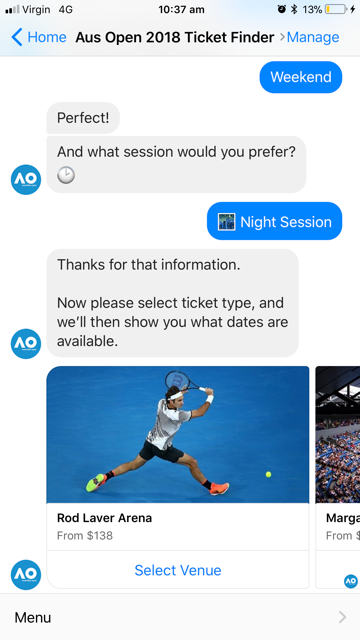 |
So, are chatbots part of the future or just another fad?
Whilst chatbot technology is still very much in its infancy, 63% people would consider messaging an online chatbot to get in touch with a brand or business4. However, this must be approached with caution as the majority of studies have found that a bad experience with chatbots typically results in them not being used again. Ideally, chatbots should be used for targeted use cases and adhere to strict design principles.
With further advances in Machine Learning driving the level of intelligence, linguistics, problem solving capability and personalisation in chatbots they are no doubt here to stay. However, they still have a lot of growing to do.
References:
1 8146.0 – Household Use of Information Technology, Australia, 2014-15 – http://www.abs.gov.au/ausstats/abs@.nsf/mf/8146.0
2 Sensis Social Media Report, 2017 – https://www.sensis.com.au/asset/PDFdirectory/Sensis_Social_Media_Report_2017-Chapter-1.pdf
3Mobile Messaging Report, 2016 – https://insights.ubisend.com/2016-mobile-messaging-report#go
4Humanity in the Machine, 2016 – http://www.mindshareworld.com/sites/default/files/MINDSHARE_HUDDLE_HUMANITY_MACHINE_2016_0.pdf

